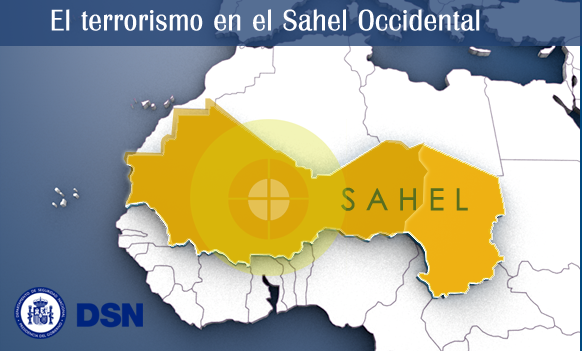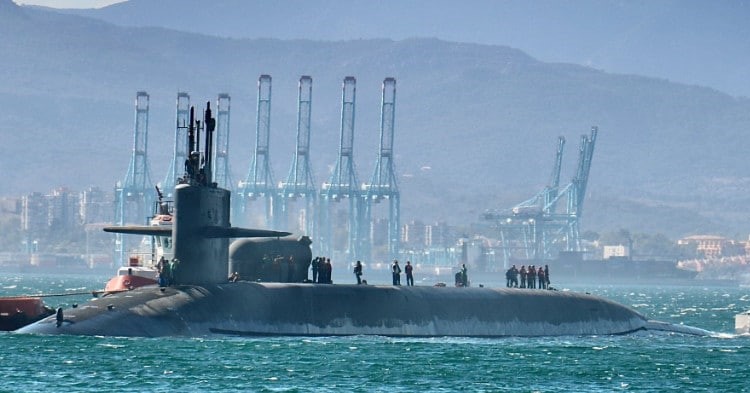The Diplomat
A report from the Department of National Security (DSN) of the Presidency of the Government warns that the situation in the Sahel, where coups d’état are taking place and terrorist groups are proliferating, poses a “real threat” to Spain.
The 2023 National Security report prepared by the DSN recalls that “the Sahel is a priority area for Spain due to the effect it may have on the Maghreb countries and the possible extension of conflicts to neighboring territories, such as the Gulf of Guinea”, where there have already been attacks in countries like Benin or Togo.
For this reason, the DSN points out in that document, collected by Europa Press, that it is necessary to stabilize the area “to prevent jihadist groups from having bases from which to plan terrorist actions against Spanish and European objectives.”
The countries of the Sahel, in particular Mali, Burkina Faso and Niger, have been the scene of intense activity by jihadist groups for years. The affiliates of the Islamic State and Al Qaeda in this region of Africa are among the most active and deadly worldwide.
The document emphasizes that the military junta that governs the three countries “are adopting other options to combat terrorism, with other approaches, linked to the excessive use of force and counting, in some cases, on the help of Russian mercenaries,” in reference to the presence, mainly in the case of Mali, of the Wagner Group.
Likewise, the report highlights that “non-state armed groups continue to carry out large-scale attacks against civilian and military targets, expand throughout the countries bordering the Gulf of Guinea, and engage in clashes over access to resources, territorial control and influence”.
For all these reasons, the DSN warns that “the situation in the Sahel and its geographical proximity to Spain constitutes a real threat, both due to the possible departure of combatants to said territory”, given the calls by terrorist groups to emigrate to this region. to carry out jihad there, “as well as the possible arrival of terrorists who can use structures and transit routes used by organized crime.”
Regarding this issue, the report points out that “in Spain no departures of jihadist volunteers towards conflict scenarios have been detected in 2023, so the main risk continues to be the possible return” of the so-called foreign terrorist fighters (CTE), “especially if they occur clandestinely and indirectly, using routes and methods typical of illegal immigration networks.”
However, apart from the Spanish CTE, the DSN admits that “the possible arrival to Spain of returnees from other countries, whether European or from the Maghreb, may be especially worrying.” According to the data collected in the report, Spain would have 272 CTE, of which 102 are displaced in a conflict zone, 65 are returned and 104 have died.
Faced with this threat in the Sahel, “Spain considers that efforts in the fight against terrorism should focus on training missions focused on training the armed forces and local security forces to contain terrorism.”
One of these missions is precisely EUTM Mali, in charge of training Malian forces and which has remained blocked for more than a year. The Spanish contingent is the bulk of it and the EU must decide before May on its continuity.
Increase in illegal immigration
Another consequence of instability in the Sahel is the increase in illegal immigration, according to the report. Specifically, it points out that the arrivals of immigrants illegally to Spain in the last year were 95% more than in 2022 (56,039 immigrants), while arrivals by sea increased by 91%, with the Canary Islands as the main destination. The archipelago experienced 154% more arrivals during 2023.
“The increase in arrivals from the Sahel in 2023, although it did not reach the levels of 2018, did represent a challenge for migration management,” the report highlights. Of the 40,403 irregular immigrants arriving during the last year along the so-called Atlantic route, according to the European Border Agency (Frontex), 17% came from Senegal, 14% from Morocco and 6% from Mali, while 44% They lacked identification.
The DSN draws attention to the fact that after the coup d’état in Niger, which has paralyzed the EU’s security collaboration with this country, it is likely that “the control of migratory flows will decline in importance within the political agenda of the new Government”.







